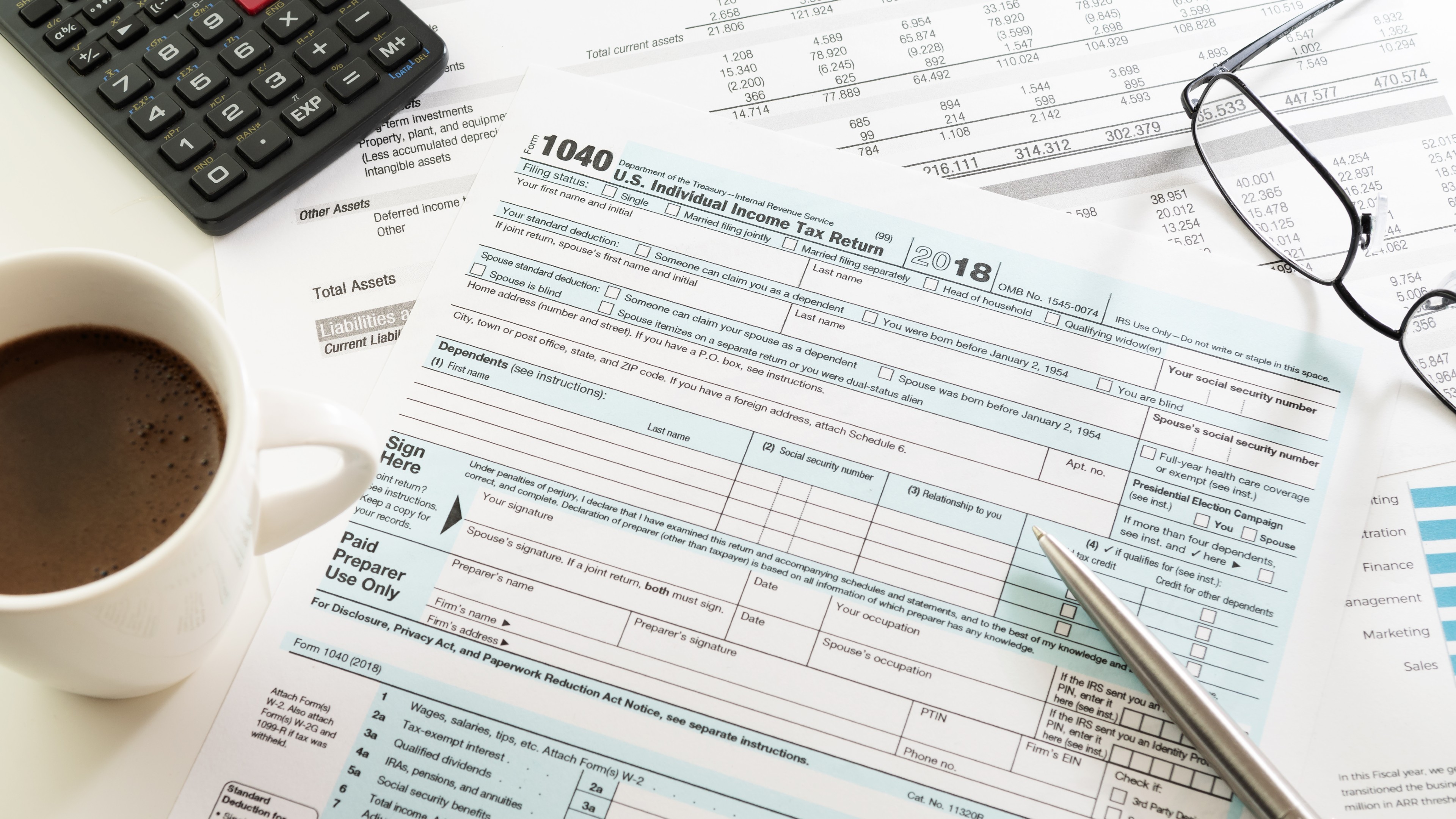3 tax-filing tips to avoid an IRS audit
There are steps you can take to reduce the odds you will be singled out


A free daily email with the biggest news stories of the day – and the best features from TheWeek.com
You are now subscribed
Your newsletter sign-up was successful
Even though taxes are an annual activity for most, it still can feel all too easy to accidentally mess something up as you go through pages and pages of information to file your return. This can understandably lead to a sense of anxiety every time tax season rolls around, particularly when it comes to the dreaded possibility of an IRS audit.
The good news is that the "percentage of people who actually are audited is extremely small," said TurboTax, and there are steps you can take to "reduce the odds that you will be singled out for that extra attention in the first place."
1. Triple check that you're reporting all of your income
Filing your taxes is "not a race," said The Wall Street Journal. In other words, it's perfectly OK — actually suggested — to slow down to make sure you have all of the paperwork you need to accurately complete your return.
The Week
Escape your echo chamber. Get the facts behind the news, plus analysis from multiple perspectives.

Sign up for The Week's Free Newsletters
From our morning news briefing to a weekly Good News Newsletter, get the best of The Week delivered directly to your inbox.
From our morning news briefing to a weekly Good News Newsletter, get the best of The Week delivered directly to your inbox.
"The IRS already has this information when you file your return," said the Journal, so it's really important that you're not forgetting any income reporting forms, such as "W-2 wage statements and 1099s for other income." In fact, said Kiplinger, you should "report all income sources on your 1040 return, whether or not you receive a form such as a 1099." Also don't forget about any money you may have gotten throughout the year outside of work, like from the "sale of an asset, such as a home," said Investopedia.
To help avoid any oversights, you might plan to just sit tight and "wait for all your income reports, bank and investment statements, and other applicable financial paperwork to arrive before starting your tax return," said TurboTax. And if you're a freelancer or gig employee, remember that you "need to track income received throughout the year and report it on tax returns as earned income," said Investopedia, as you "may not receive income statements."
2. Play it safe with deductions, credits, and losses
"If the deductions, losses or credits on your return are disproportionately large compared with your income, the IRS may want to take a second look at your return," said Kiplinger. Other potential red flags for the IRS include "taking a big loss from the sale of rental property or other investments," alongside "bad debt deductions or worthless stock."
That said, you shouldn't hesitate to claim what's rightfully yours. Indeed, "if you have the proper documentation for your deduction, loss or credit, don't be afraid to claim it," said Kiplinger. Just make sure you have the proof to back up whatever you're claiming.
A free daily email with the biggest news stories of the day – and the best features from TheWeek.com
3. Take a second to review your return before filing
Even if you're feeling eager to just finish the darn thing, take a second before submitting your return to ensure your entries are accurate and that you've filled in everything requested. "One of the most common red flags for auditors — erroneous data entry — is also one of the most preventable," said TurboTax. Indeed, "the IRS' automated system will easily detect discrepancies, and it won't be obvious whether or not a discrepancy is accidental or on purpose."
Common mistakes to look out for during your review include "math errors" and "failing to sign the return," said Investopedia. But before you get too obsessive, remember that it is possible to correct a mistake in your return if you happen to realize it after the fact. You have the option of filing an amended tax return, or "if you catch a mistake early enough, you can file what’s called a superseding return — one that is filed after the originally filed return but submitted before the due date, including extensions," said the Journal.
Becca Stanek has worked as an editor and writer in the personal finance space since 2017. She previously served as a deputy editor and later a managing editor overseeing investing and savings content at LendingTree and as an editor at the financial startup SmartAsset, where she focused on retirement- and financial-adviser-related content. Before that, Becca was a staff writer at The Week, primarily contributing to Speed Reads.
-
 ‘The West needs people’
‘The West needs people’Instant Opinion Opinion, comment and editorials of the day
-
 Filing statuses: What they are and how to choose one for your taxes
Filing statuses: What they are and how to choose one for your taxesThe Explainer Your status will determine how much you pay, plus the tax credits and deductions you can claim
-
 Nan Goldin: The Ballad of Sexual Dependency – an ‘engrossing’ exhibition
Nan Goldin: The Ballad of Sexual Dependency – an ‘engrossing’ exhibitionThe Week Recommends All 126 images from the American photographer’s ‘influential’ photobook have come to the UK for the first time
-
 Filing statuses: What they are and how to choose one for your taxes
Filing statuses: What they are and how to choose one for your taxesThe Explainer Your status will determine how much you pay, plus the tax credits and deductions you can claim
-
 The pros and cons of tapping your 401(k) for a down payment
The pros and cons of tapping your 401(k) for a down paymentpros and cons Does it make good financial sense to raid your retirement for a home purchase?
-
 3 tips to help protect older family members from financial scams
3 tips to help protect older family members from financial scamsthe explainer Prevent your aging relatives from losing their hard-earned money
-
 Saving for a down payment on a house? Here is how and where to save.
Saving for a down payment on a house? Here is how and where to save.the explainer The first step of the homebuying process can be one of the hardest
-
 What would a credit card rate cap mean for you?
What would a credit card rate cap mean for you?the explainer President Donald Trump has floated the possibility of a one-year rate cap
-
 Do you have to pay taxes on student loan forgiveness?
Do you have to pay taxes on student loan forgiveness?The Explainer As of 2026, some loan borrowers may face a sizable tax bill
-
 Planning a move? Here are the steps to take next.
Planning a move? Here are the steps to take next.the explainer Stay organized and on budget
-
 What should you look out for when buying a house?
What should you look out for when buying a house?The Explainer Avoid a case of buyer’s remorse
